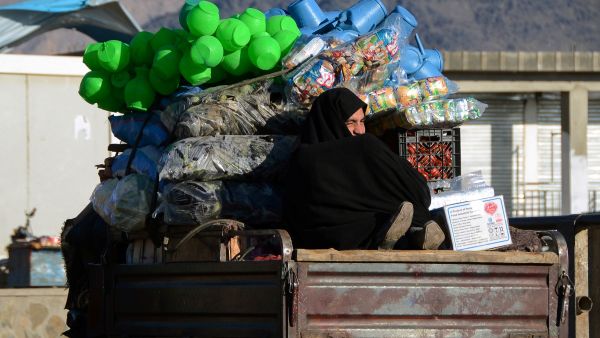The UK said on Tuesday it will “co-host a high-level pledging summit with the UN next month to support the response to the growing humanitarian crisis in Afghanistan.”
The virtual summit will see the attendance of donor countries, UN agencies and Afghan civil society, and the pledges made at the summit “will go towards the UN’s biggest-ever appeal for a single country, launched last month.”
"Of the 38-40 million people who live in Afghanistan, all but 2% or 3% don't know where the next meal is coming from"@DMiliband (@RESCUE_UK) on the humanitarian crisis in ??.
— Chatham House (@ChathamHouse) February 15, 2022
Watch our event in full:https://t.co/AbPXdO5IH8 pic.twitter.com/GkeAqCWBu1
The UN is aiming to raise $4.4 billion to help over 24.4 million Afghans in need of urgent humanitarian help, read a UK government statement, adding that “half the country’s population are facing acute hunger.”
The virtual event will also “aim to garner international support to help Afghans access basic services, particularly health and education.”
“The conference is a critical moment for the international community to step up support in an effort to stop the growing humanitarian crisis in Afghanistan,” British Foreign Secretary Liz Truss said.
“The scale of need is unparalleled, and consequences of inaction will be devastating,” she added.
UN humanitarian affairs chief Martin Griffiths called on “donors from around the globe to join together to save the lives and futures of Afghans.”
“Every day of delay means more misery for the Afghan people. They need a lifeline,” he stressed.
Nearly 23 million Afghans (approx. 55% of the population) are facing extreme hunger, with destitute families selling their children to make ends meet. Why has the international community turned its back on Afghanistan's humanitarian crisis? #AfghanistanCrisis pic.twitter.com/j8zr0kyRWj
— Dr. Nina Ansary (@drninaansary) February 16, 2022
More than half the population of Afghanistan – a record 22.8 million people – is at risk of acute food insecurity, according to a recent report by the UN’s Food and Agriculture Organization and the World Food Program.
This article has been adapted from its original source.











